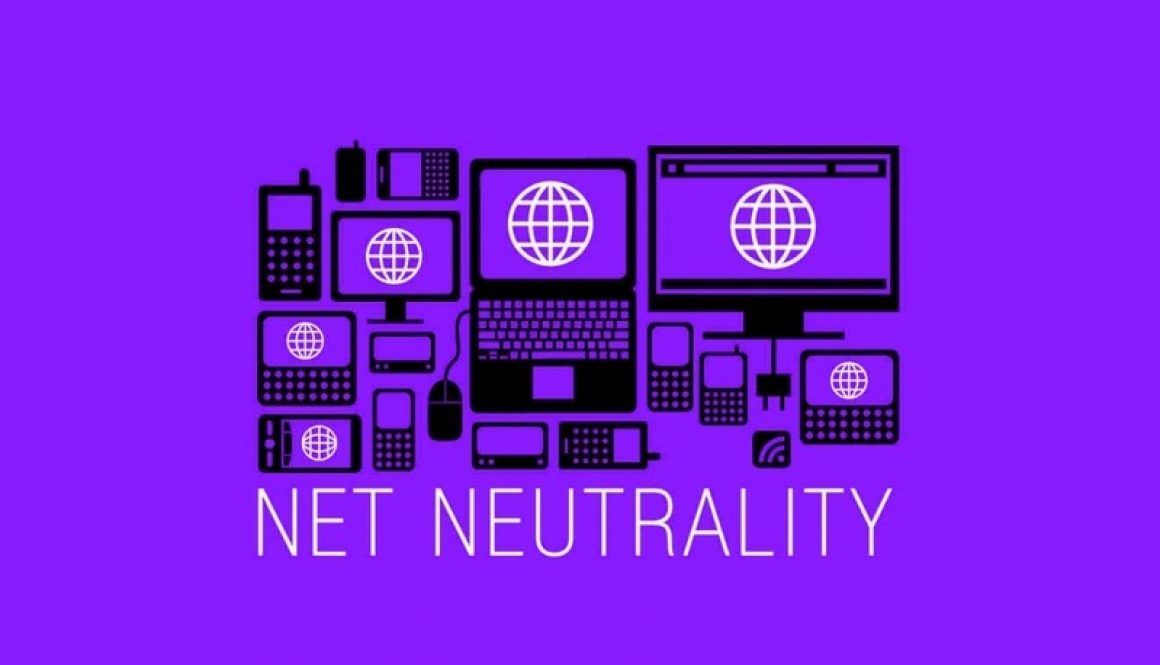On Net Neutrality, the U.S. Chamber of Commerce again sides with Big Business over Consumers
On July 12, activist groups and tech companies came together to protest a potential rollback of net neutrality regulations under the Trump administration. These rules are designed to ensure equal access to all internet content. Billed as a “Day of Action”, the event ultimately generated around two million comments to the FCC opposing this deregulation.
The U.S. Chamber of Commerce was unimpressed.
Two million comments apparently mean little compared to the hundreds of millions of dollars the Chamber receives in corporate donations. As always, when faced with a choice between supporting consumer or corporate interests, the Chamber puts profits before people. And under a president who has made a point of undoing regulationscreated by his predecessor, the Chamber has had plenty of opportunities to demonstrate its convictions.
The Trump administration’s entire deregulatory crusade has disastrous implications for the American public, and the proposed net neutrality rollbacks are no exception. If net neutrality regulations are eliminated, larger ISPs will be able to privilege certain web content over others. This means that ISPs like AT&T and Comcast could potentially charge companies to guarantee easy access to web content, and this would damage users’ ability to access content from less well-funded sites.
Our current system of net neutrality regulations were created in 2015 under President Obama. The rules provoked a spate of criticism from the Chamber. In fact, the Chamber claimed that such protections are “a bad solution to a problem that doesn’t exist,” even though companies such as Netflix had already detailed discriminatory treatment by ISPs.
Net neutrality proponents argue that by ensuring equal treatment of all internet content, companies compete on a level playing field and consumers are able to access whatever content they want without issue. Meanwhile, opponents such as the Chamber argue that net neutrality regulations limit incentives for ISPs to improve their networks. These critics argue that without charging companies to guarantee access to content, ISPs won’t have the money necessary to make these investments. In reality, investment in internet infrastructure has not decreased as a result of net neutrality regulations.
The Chamber concedes that the vast majority of Americans, including Trump voters, support net neutrality. In fact, even smaller ISPs, part of the small business community that the Chamber loves to claim to represent, support net neutrality regulationsbecause they prevent larger competitors from gaining an unfair advantage. That leaves only one constituency in favor of deregulation: giant corporations such as Comcast and AT&T. And on this issue (like many others), Big Business is the only constituency that the Chamber can credibly claim to represent.
In addition to its public advocacy work against net neutrality, the Chamber is clearly willing to put money behind its position. The Chamber’s lobbying disclosures from 2015 — when the rules were implemented — include five separate mentions of work on net neutrality. It’s mentioned on this year’s disclosures as well. What’s more, the Chamber’s opposition to the net neutrality rule isn’t even shared by all large corporations. Facebook and Google belong to the Chamber and both participated in the “Day of Action”.
As a result of the overwhelming support from the public and even some members, the Chamber has had to revamp its message on the issue. The Chamber, like AT&T and other ISPs, argue that they are not actually opposed to net neutrality. Instead, they take issue with the current means of enforcing these rules.
How do they thread this needle? Well, under the rules created during the Obama administration, the FCC regulates internet providers as entities that offer “telecommunications services” rather than “information services”. This important regulatory distinction enables the FCC to impose stricter rules on ISPs, yet the Chamber claims that net neutrality could be achieved even if this framework were thrown out. By attacking the classification system, rather than net neutrality itself, the Chamber and large ISPs can claim that they are not directly opposing consumer interests.
But in reality, if this framework was dropped by the regulator, it would severely limit the FCC’s power to ensure access to a free and fair internet, and the Chamber and the big ISPs are well aware of the implications of such a move. Moreover, by arguing that Congress should instead pass a law establishing net neutrality, the Chamber is suggesting a solution that it surely knows is unlikely to be passed anytime soon, given the legislative gridlock that has characterized the last several congresses. In the meantime, the ISPs could go back to slowing the delivery of content from Netflix and any other companies they choose.
The push to deregulate the internet is led by Ajit Pai, recently named chairman of the FCC by President Trump. The Chamber has referred to Pai as “the internet’s friend.” What the Chamber really means is that Pai is the corporate lobbyist’s friend. Dismantling net neutrality regulations, whether directly or indirectly, serves only to benefit a very narrow set of corporate interests, while it hurts just about everyone else who uses the internet. Once again, the Chamber reveals its true concern is not the growth of the economy as a whole, but the financial benefits it can secure for its giant corporate members.

